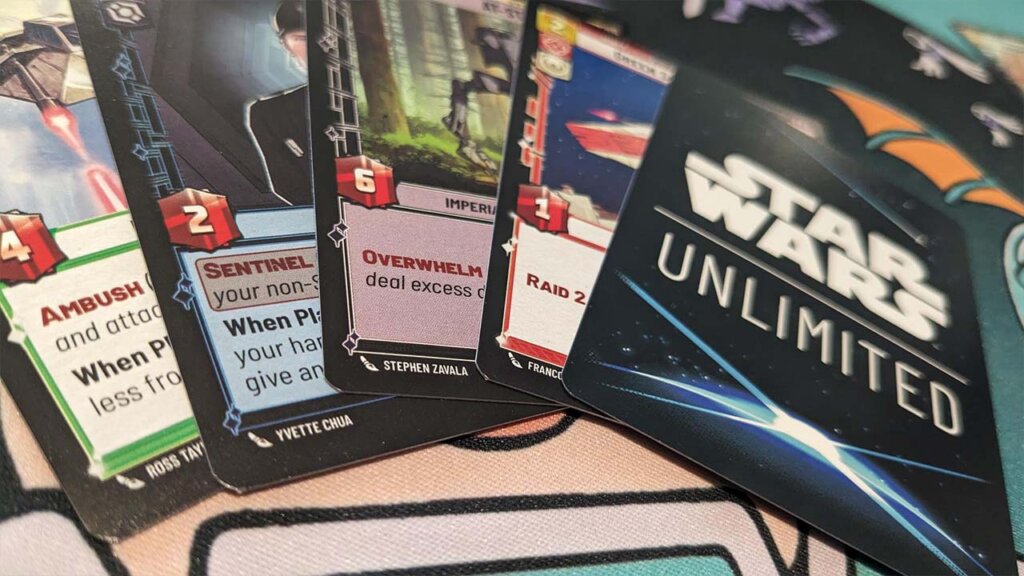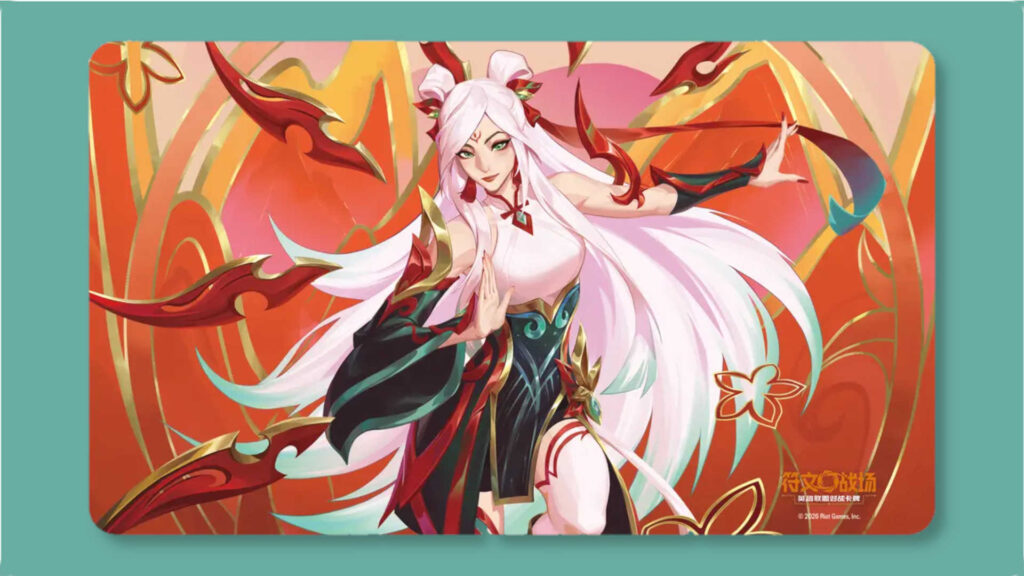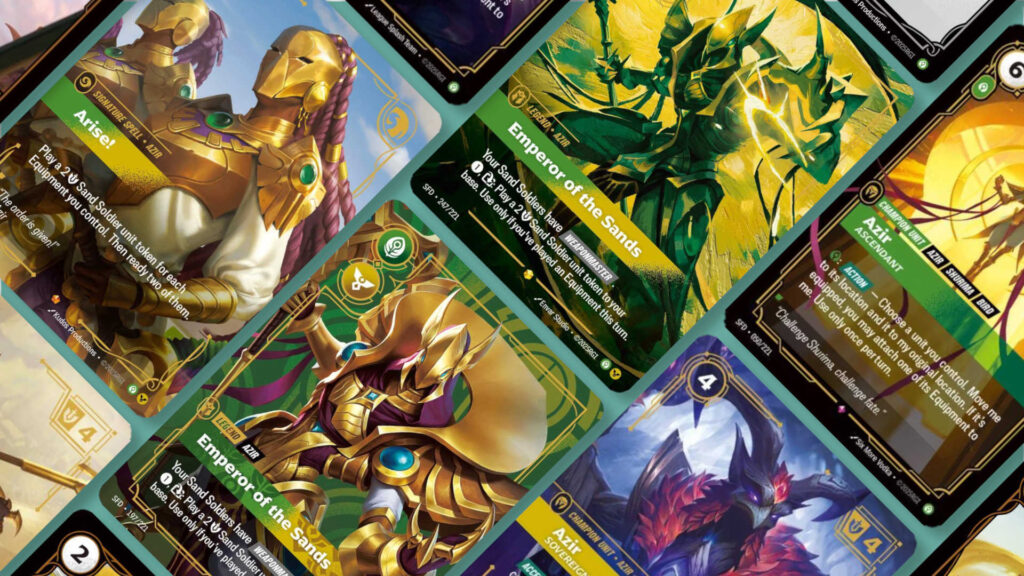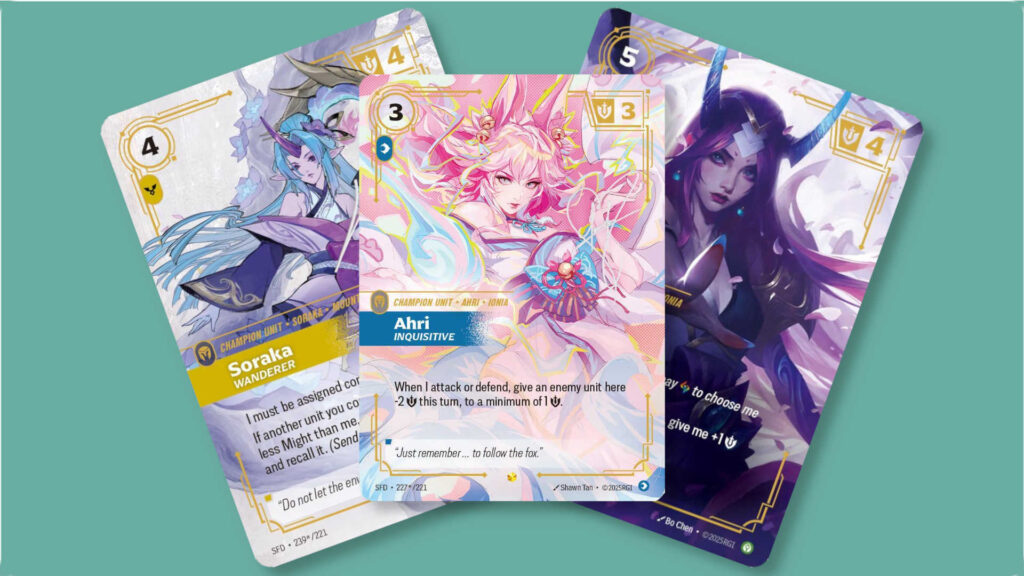Though Star Wars Unlimited is a very straightforward and accessible game to play, like most trading card games (or TCGs), the usage of keywords can sometimes make card abilities and functions a little tricky to decipher. Sometimes, the keyword effect or ability is explained on the card, but even if they are, players may still have questions that arise from the wording.
Which is where Card Gamer comes in! Let’s take a look at all of the keywords that feature in Star Wars Unlimited, and explain them one by one.
Table of Contents
ToggleList of Keywords in Star Wars Unlimited
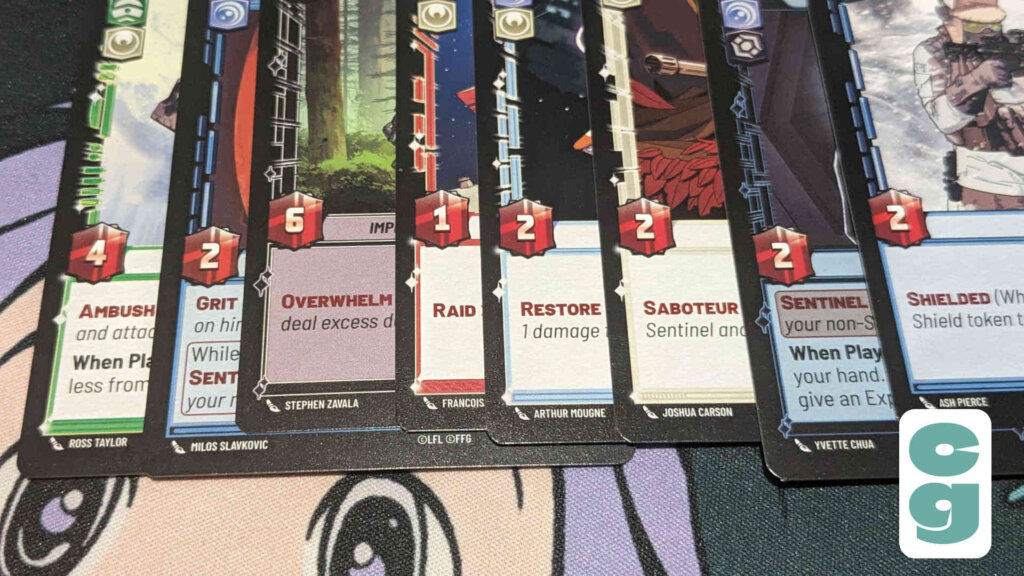
The full list of keywords that feature in the first set for Star Wars Unlimited, Spark of Rebellion, are as follows, in alphabetical order:
- Ambush
- Grit
- Overwhelm
- Raid
- Restore
- Saboteur
- Sentinel
- Shielded
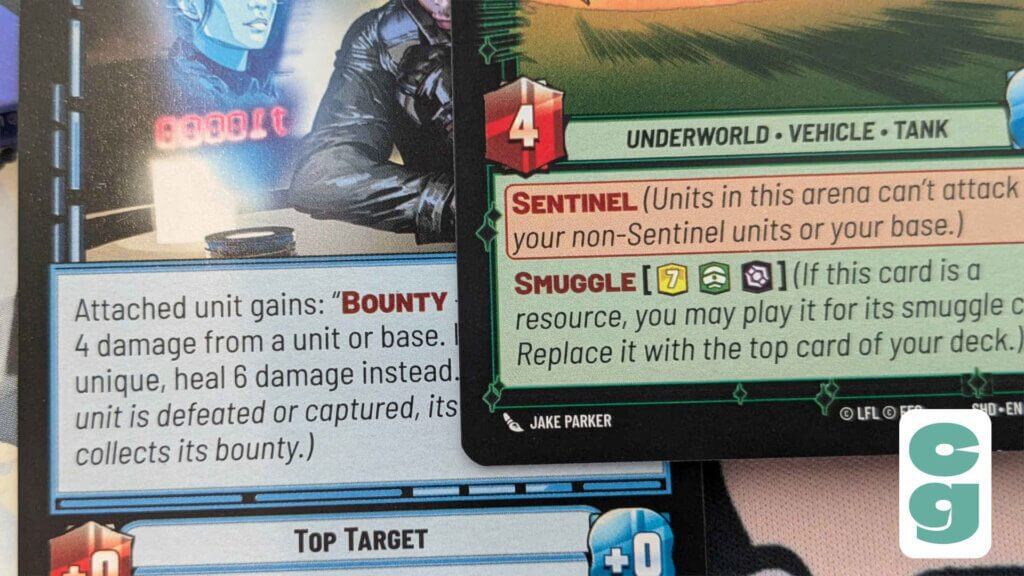
Two more were introduced in Star Wars Unlimited’s second set, Shadows of the Galaxy. They are Bounty and Smuggle, and two examples are shown above.
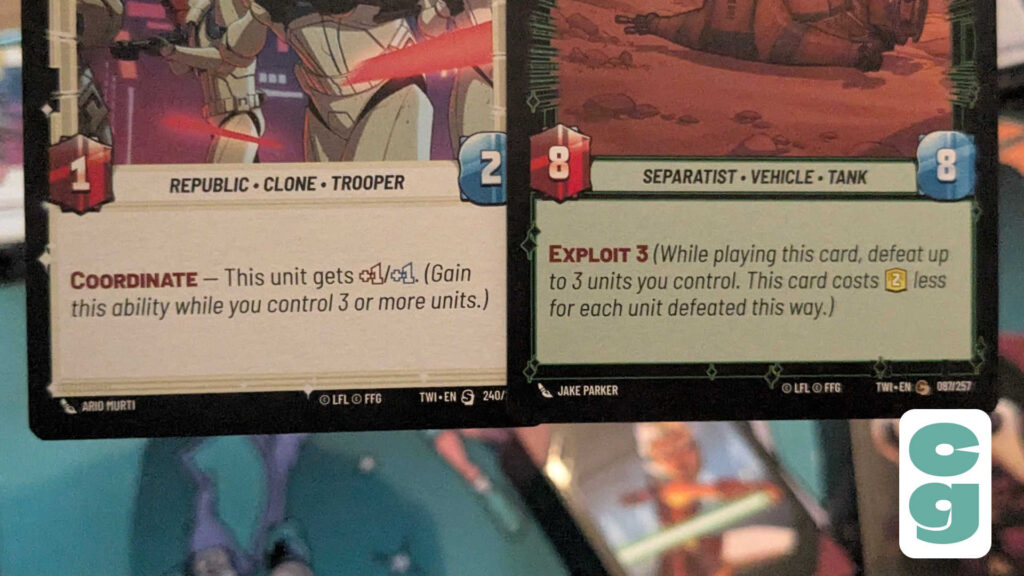
Twilight of the Republic, the third set for Star Wars Unlimited, introduced a further two new keywords: Coordinate and Exploit, shown on the above two cards.
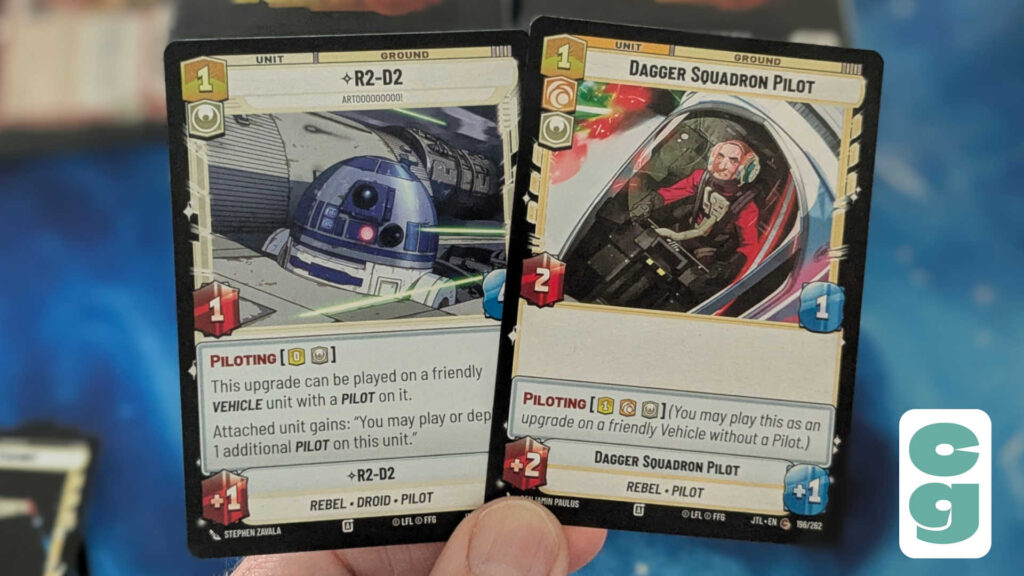
Piloting was added in Jump to Lightspeed, complementing the vehicle-based focus of that particular set.
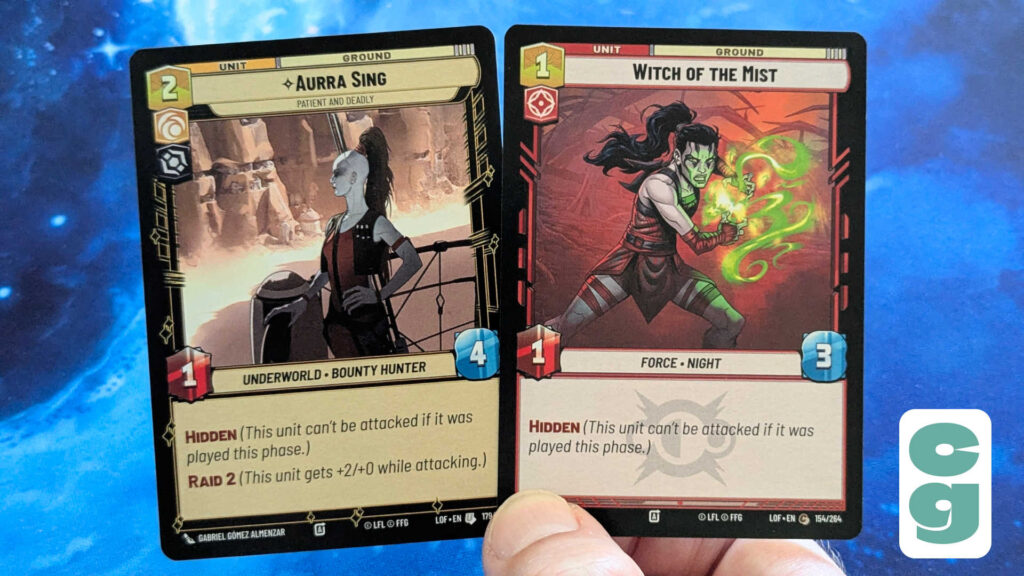
Legends of the Force brought the Hidden keyword to Star Wars Unlimited, along with the Force. Though not a keyword, the Force is a pretty important mechanic, and we’ve written a handy guide to explain how to use it!

A new addition in Star Wars Unlimited set, Secrets of Power, Plot gives players a new way of re-using cards from their resources.
All Star Wars Unlimited Keywords Explained
With all of that in mind, let’s check out all of the keywords in Star Wars Unlimited so far, in alphabetical order.
Ambush
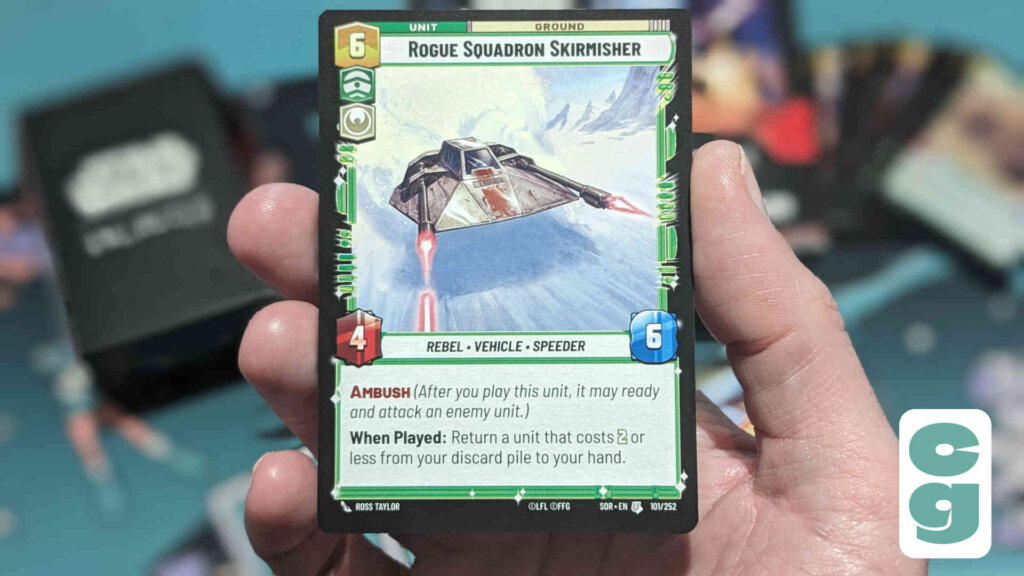
When played, cards that have the Ambush keyword may immediately ready, rather than enter play exhausted. This readied unit can then immediately attack an opponent’s unit.
However, do note that if no enemy units are present to be attacked when the Ambush unit card is played, it cannot be readied and, therefore, remains exhausted in the same way as a non-Ambush card does when being played.
Bounty
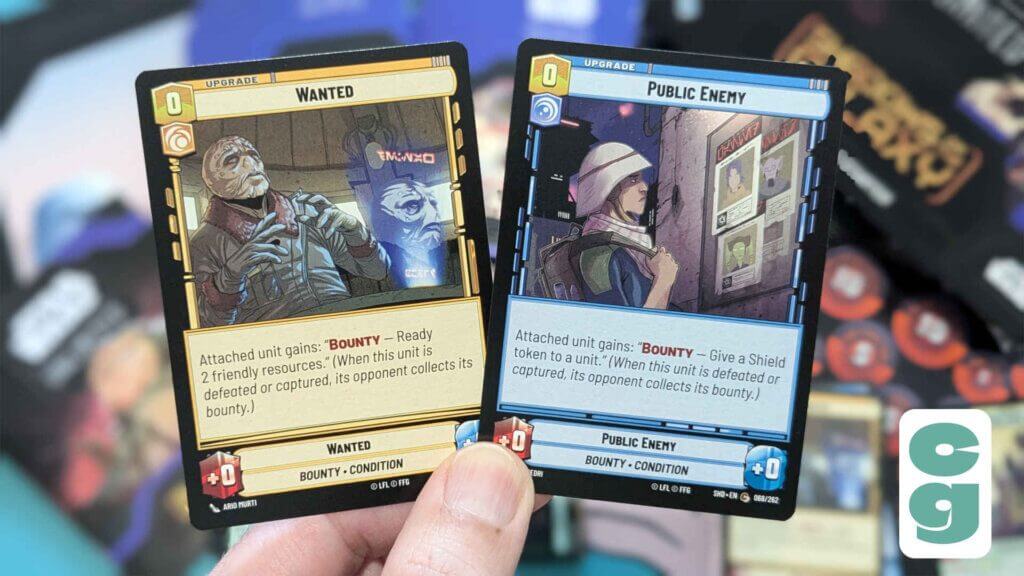
Cards which have the Bounty keyword grant a bonus to the opponent who defeats a card. As this can differ so much, we’ve included two examples in the above picture. The Wanted card on the left, for example, will allow the opponent to ready two resources if the card that Wanted is attached to is defeated.
This introduces a very intriguing element to Star Wars Unlimited, as you’ll play Wanted on an opponent’s card as an action. It doesn’t grant them any bonuses, but if you defeat the unit you’ve attached it to, you’ll be able to immediately ready two resources.
The Public Enemy card on the right works in a similar way; it essentially places a target on a unit and gives the opponent a reward for defeating them. So you’ll attach this card to an enemy unit, then when they’re defeated, you collect the Bounty; in this instance, that means giving a Shield token to the unit of your choice.
Coordinate
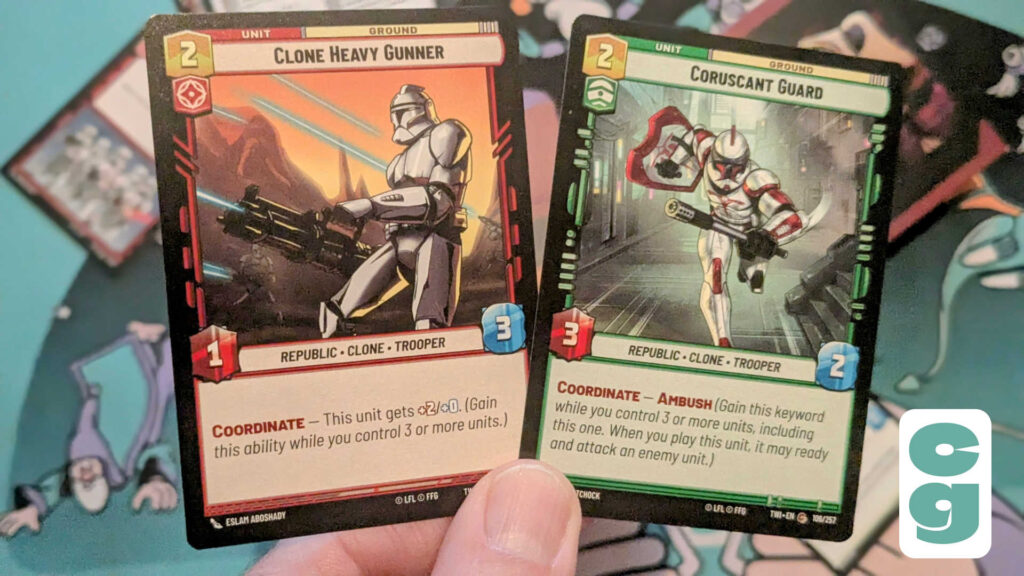
Much like Bounty, the Coordinate keyword can give wildly different bonuses, depending on the card itself, so there are two examples of cards which have Coordinate above.
The Coordinate keyword triggers when you have 3 or more units in play under your control; note that they don’t have to be in the same arena as your Coordinate card. As long as you have at least 3 units in play in total across your ground and space arenas, and as long as they remain under your control, you can use the Coordinate bonus.
The card on the left in the above image, Clone Heavy Gunner, gets a +2/+0 to its Power/HP when Coordinate is triggered, whereas the card on the right, Coruscant Guard, gains the Ambush keyword when Coordinate can be applied.
Exploit
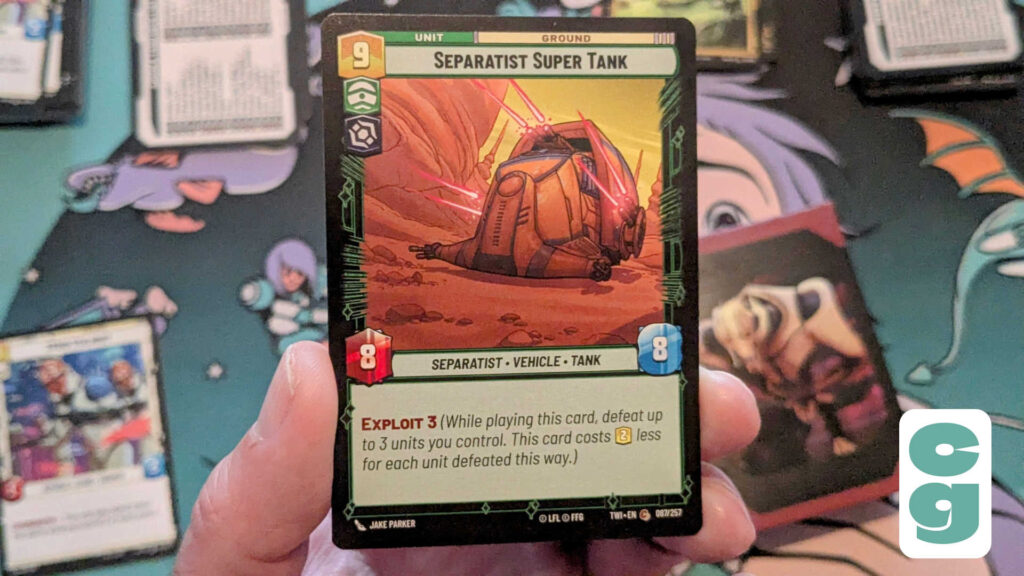
A keyword which is not likely to be making its way to any cards that have the Heroism aspect, Exploit was, like Coordinate, introduced in the Twilight of the Republic set. The reason it’s a safe bet that we won’t see this on any Heroism cards is that you have to defeat a certain number of units you control in order to use it. Doesn’t seem very heroic, does it?
The number next to the Exploit keyword is how many units you can defeat in order to use the maximum strength of it ability; in the example above, the Separatist Super Tank has Exploit 3, so you can defeat up to 3 of your units to use it.
What Exploit does is reduce the cost of the keyword-bearing card by 2 resources for each unit you defeat. Though Separatist Super Tank has a massive cost of 9 resources to be played, for each of your units you defeat, you can reduce this cost by 2 resources. If you defeat 1 unit under your control, the cost of Separatist Super Tank is 7 resources. Defeat 2 of your units and it goes down to a cost of 5 resources. If you defeat the maximum 3 of your units, Separatist Super Tank costs just 3 resources to play, which is incredibly cheap!
If you have several units that have done what you needed them to do already, or are wounded and would be taken out soon anyway, why not reduce the cost of a monster unit like Separatist Super Tank to get it into play for a very low number of resources?
Grit
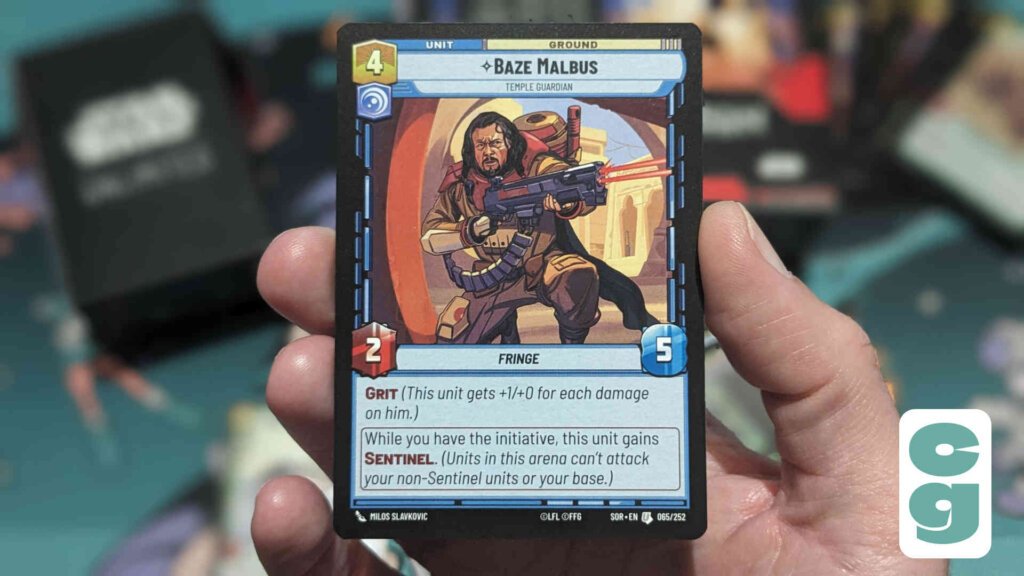
If a card has the Grit keyword, it gains 1 additional point of power for each point of damage it has. For example, if it has 2 points of damage, it gains 2 points of power that it uses when attacking and defending.
However, note that this does not apply during the combat in which it receives this damage, as attacking and defending is considered to occur simultaneously. This is not the case if the attacker has an ability where it deals combat damage before the defender (such as Shoot First, for example). As long as the defender survives the damage it receives, it can then retaliate with the Grit bonus applied.
Hidden
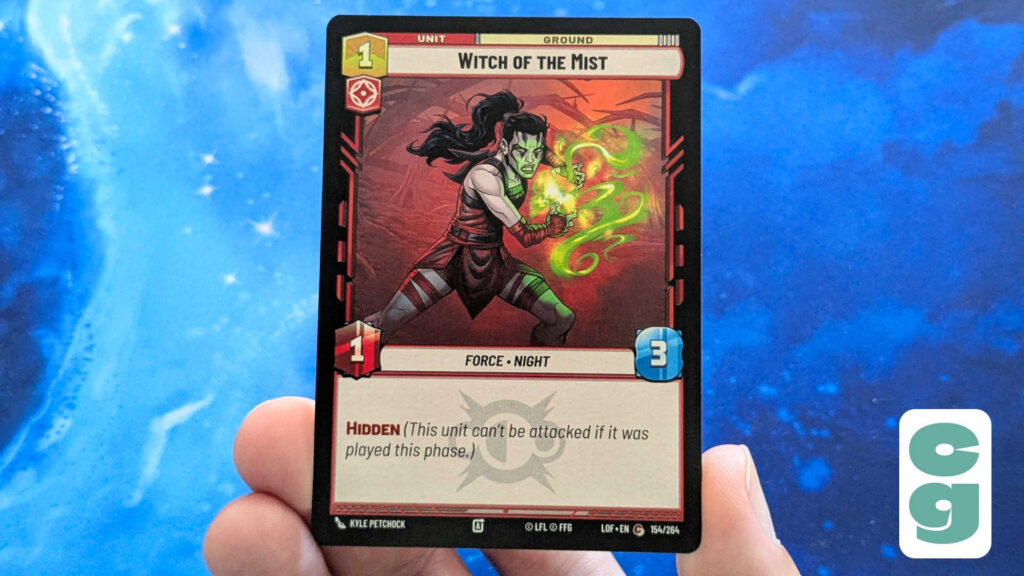
A relatively straightforward keyword, Hidden will protect a unit from attack, at least during the phase in which it was played. So it gives its player a turn (or at least, the remainder of one) to get their plans in order and strengthen the unit before it can be targeted by the attack of an opposing player’s unit.
Overwhelm
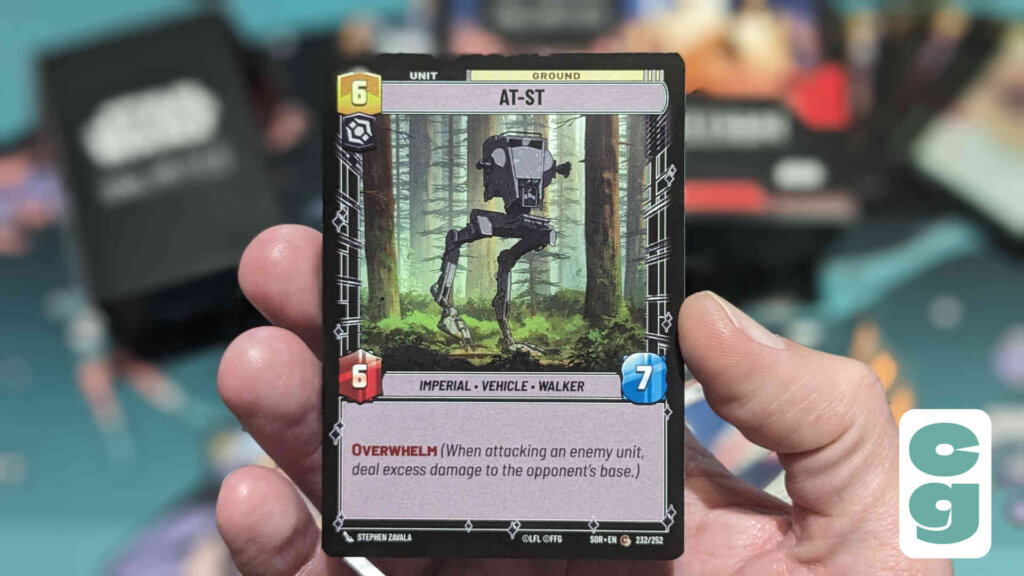
When a unit with Overhwhelm attacks, it deals damage to the unit it’s attacking, then any excess damage is applied directly to the opponent’s base. So if a unit with 6 power and Overwhelm, as in the example above, attacks an enemy unit with 2 HP, it will then deal 4 damage to the controller’s base!
Piloting
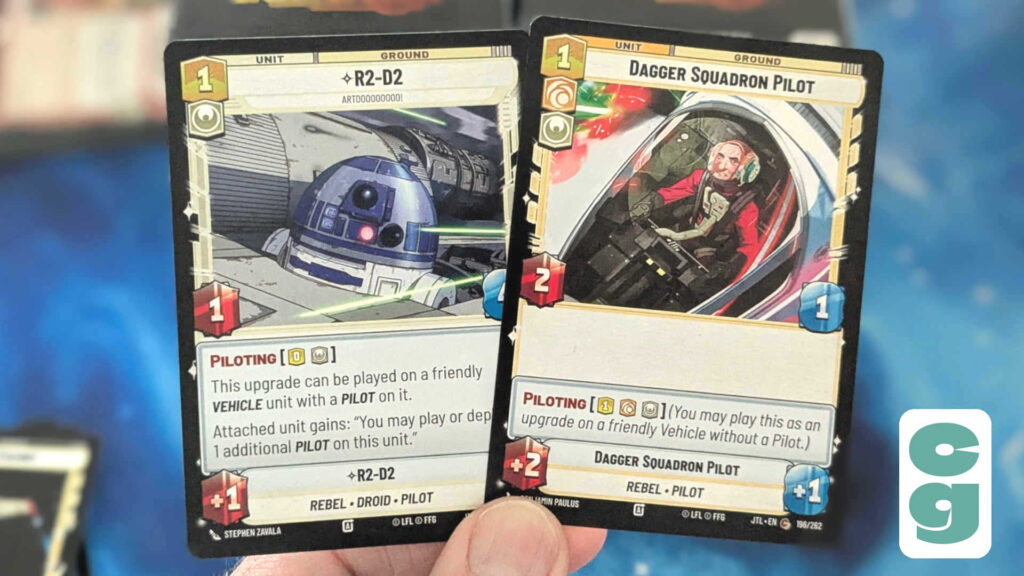
A card with Piloting has two costs; its standard cost to be played in the top left, if it deploys as a unit, and a cost to play it as an upgrade, next to the Piloting keyword on the card. If deployed as a unit, you’ll pay the normal resource cost and the card will go into your ground arena. Its stats are shown in the center of the card; for example the Dagger Squadron Pilot card shown above has 2 Power and 1 HP.
If deployed as a Pilot, the Dagger Squadron Pilot’s cost would be 1 resource, and require the Cunning and Heroism aspects. It’s then treated as an Upgrade card, and its stats are shown at the bottom of the card, which are added to the stats of the Vehicle it is upgrading.
Note that once a Pilot card is in play as a unit, its Piloting cost cannot be paid to then use it as an Upgrade on a later phase. The same applies if it’s deployed as an Upgrade; it cannot then be removed and subsequently used as a unit.
Plot

A card with the Plot keyword may be played from the resources when a leader card is deployed. So, for example, if you have Dogmatic Shock Squad face down as a resource card, when you deploy your leader, you may also play Dogmatic Shock Squad direct from your resources into your ground arena. Note that the card’s cost must still be paid as normal; Dogmatic Shock Squad costs 6 resources to play, so you’ll still need to be able to cover that cost. Once played, you then need to replace it the “missing” card in your resource row with the top card of your deck.
Note that other cards may also make use of cards with the Plot keyword, so even though it may seem that these are only useful once per game (during the one-off leader deployment), that won’t be the case if you’ve built your deck with Plot events and other cards in mind. Check out our how to use the Plot keyword guide for more details.
Raid
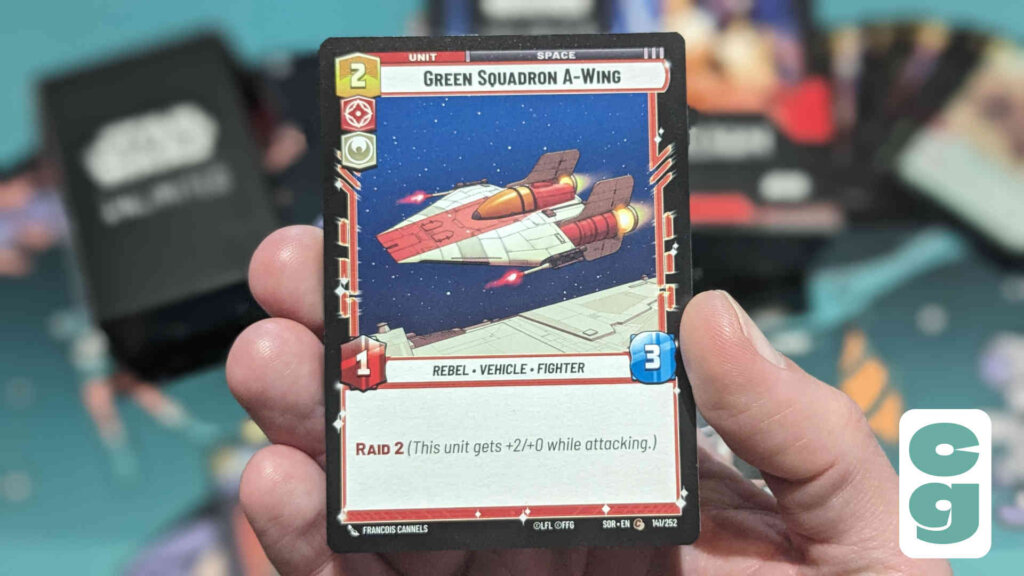
If a unit has the Raid keyword, it gains additional power when attacking; the bonus is dependent on the number next to the keyword on the card. For instance, if a unit has Raid 2, it gains a power bonus of 2, which it adds to its printed power level. So if a unit has 1 power and Raid 2, as in the example above, it would attack with a power of 3.
Restore
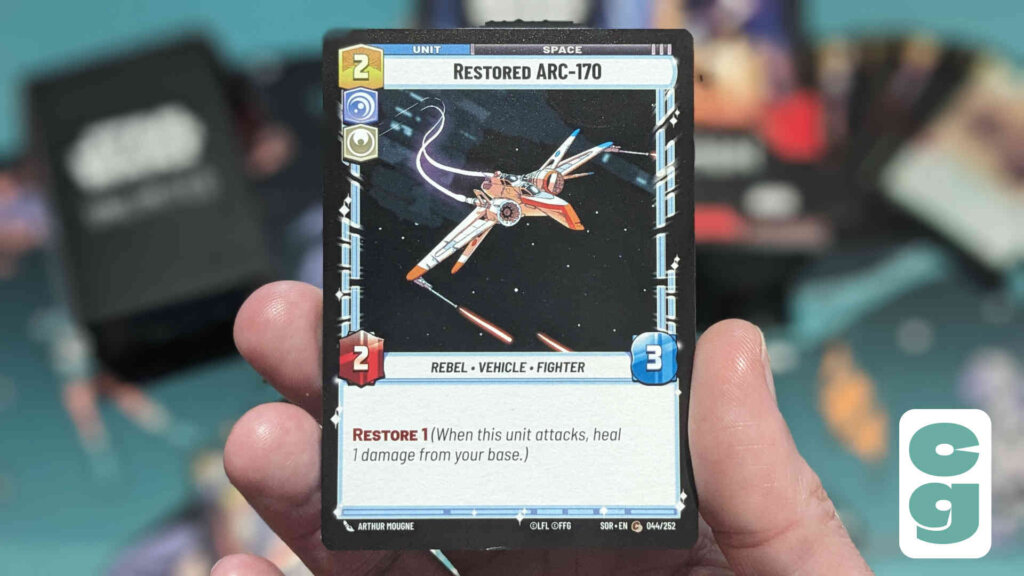
A unit with the Restore keyword heals its controller’s base, for the number of HP equal to the Restore value, when it attacks. So for example, when a unit with Restore 1 attacks (as in the example of the card above), its owner would then heal their base for 1 point. A base’s health may never exceed its printed HP, so if there are less than 2 damage counters on a base when a Restore 2 unit attacks, it will only heal back to its full HP and no more.
Saboteur
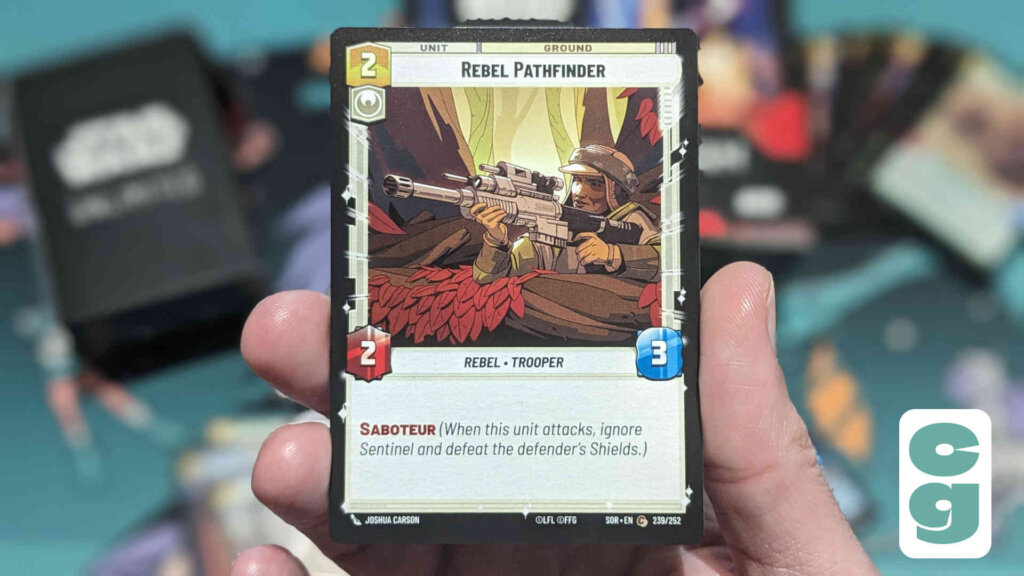
The Sentinel keyword forces other units to attack the Sentinel unit(s); Saboteur units are able to ignore the effect of Sentinel units altogether. Additionally, Saboteur units destroy Shield tokens before dealing damage, which makes them among the most versatile and useful units in Star Wars Unlimited.
Sentinel
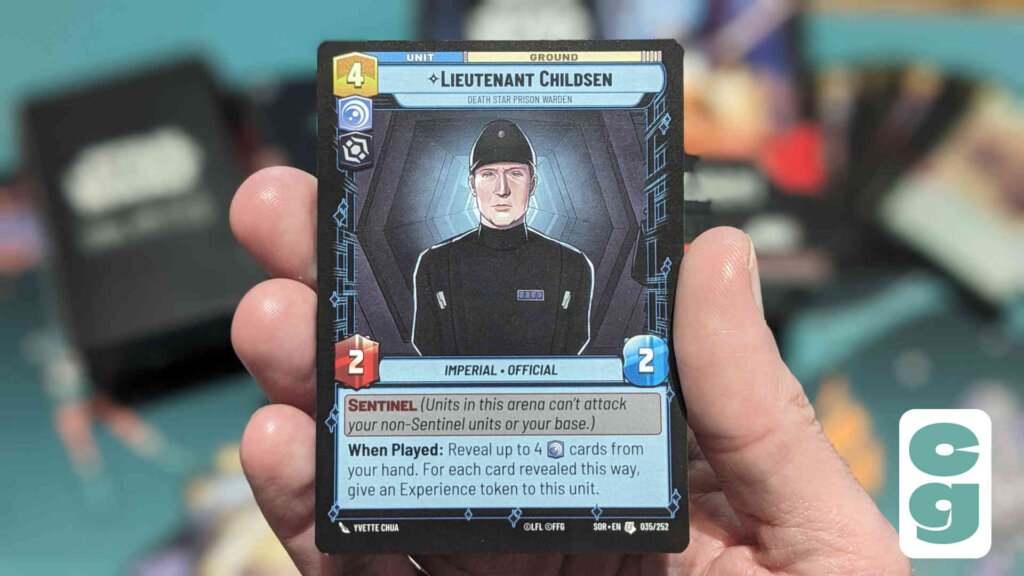
As previously mentioned, if a unit has the Sentinel keyword, it forces other units to target the Sentinel when attacking. Which means that neither an enemy base or other units can be targeted If a card has the Sentinel keyword.
When attacking, a player must choose an enemy unit in the same arena with Sentinel, and all Sentinel units must be defeated before other units or the base can be targeted. When multiple units have the Sentinel keyword, the attacker may choose who they target.
Shielded
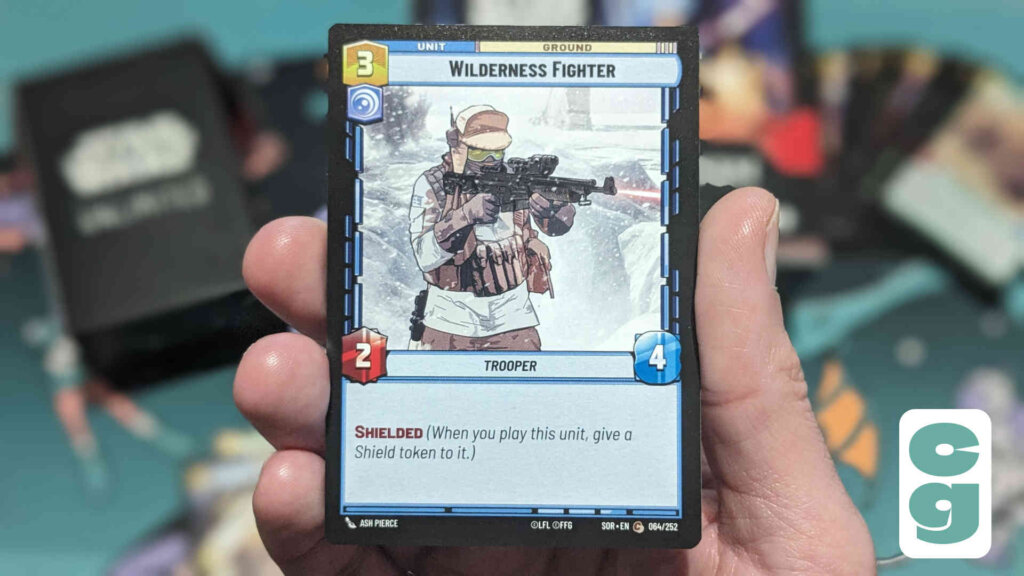
A unit with the Shielded keyword gains a Shield token immediately when played. A unit equipped with a Shield token blocks the damage of a single attack. So when a unit with a Shield takes damage from an attack, instead of applying damage to the unit, the Shield token is simply removed.
Beware, however, because if a unit has Saboteur, the Shield is destroyed and then your previously Shielded unit will take full damage from the attack!
Smuggle
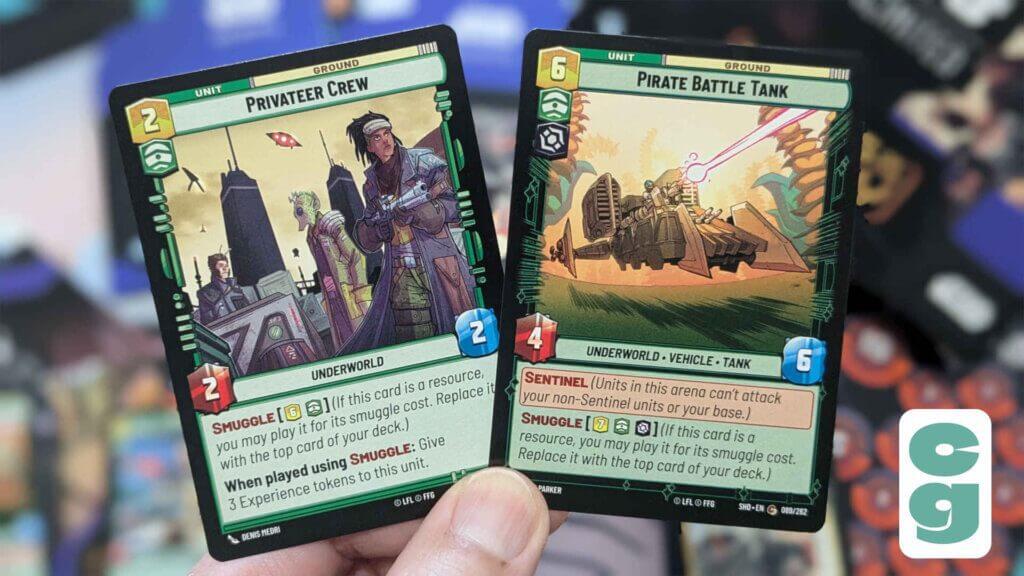
Smuggle, like Bounty, was introduced in the Shadows of the Galaxy set. Also, it’s slightly more complex to use than other keywords; something else it has in common with Bounty! As such, we’ve included two examples of cards which feature the Smuggle keyword.
Privateer Crew, on the left, has Smuggle, plus a cost in brackets, which is 6 resources plus the Command aspect. With Smuggle cards, they can be placed face down as resource, but brought back into play later in the game by paying their cost in brackets. This is, pun unintended, an absolute game-changer, as it can be agonising playing cards as resources and knowing that you’ll never be able to use them. With the Smuggle keyword, this changes the problem dramatically!
So the Privateer Crew card can be played as an action, straight from your resource area. It is then replaced with the top card of your deck, which goes directly into your resource area, so you don’t actually lose any resources by playing it. However, you do lose a card from your deck which you don’t get to choose, as such, so do be careful!
Given that Privateer Crew’s normal cost is just 2 resources, why would you bother using Smuggle? Here’s the thing: it has a bonus if it comes into play via Smuggle, and it’s a very tempting one. If played using Smuggle, it gains an extra three Experience tokens; this means it essentially goes from 2 power and 2 HP to a massive 5 power and 5 HP!
The card on the right, Pirate Battle Tank, has a normal cost of 6 and a Smuggle cost of 7 (though you’ll also need Command and Villainy to make the best use of it), which is much less of a difference than with Privateer Crew’s Smuggle cost. It also doesn’t gain a bonus when played using Smuggle, but that 1 resource difference means it offers quite a straightforward choice to use it as a resource in the early game, without sacrificing too much later.
Which brings us to the end of the list of keywords in Star Wars Unlimited!
What Other Information Is Useful To Know When Playing Star Wars Unlimited?
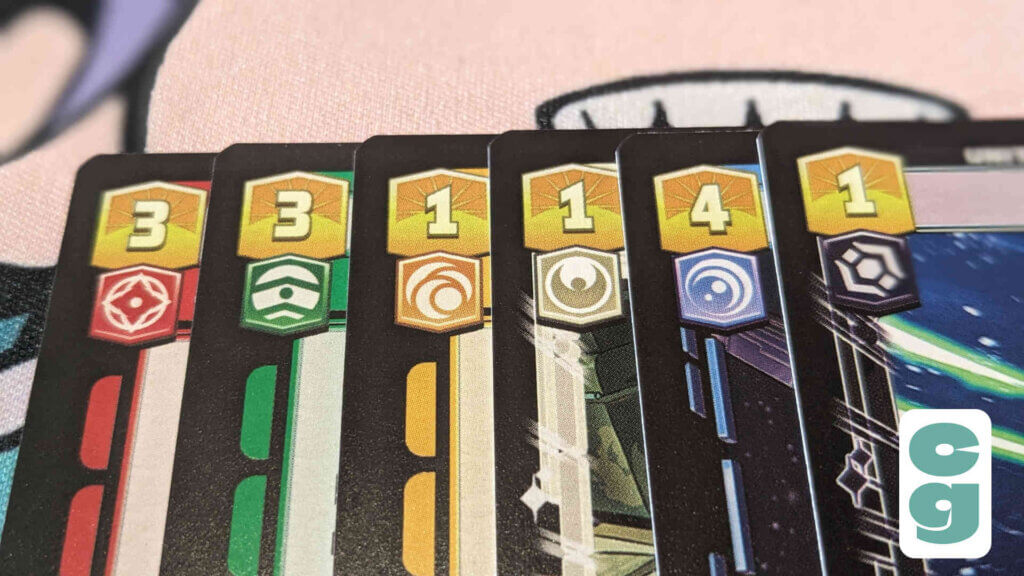
If you’re looking for insight into other elements of the game, why not check out my guide to Aspects in Star Wars Unlimited?
There’s also a Star Wars Unlimited Card List, for full details of all of the mechanically unique cards in Spark of Rebellion, and a similar list for the second set, Shadows of the Galaxy.
Finally, the guide to Star Wars Unlimited Card Rarities will give you the insight you need to identify the most sought after cards in your collection!


